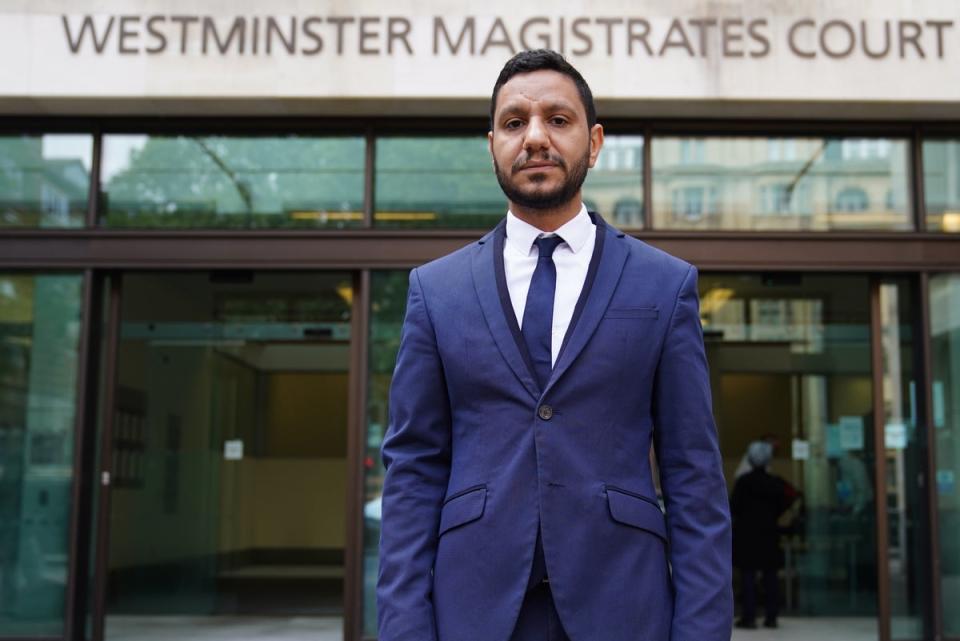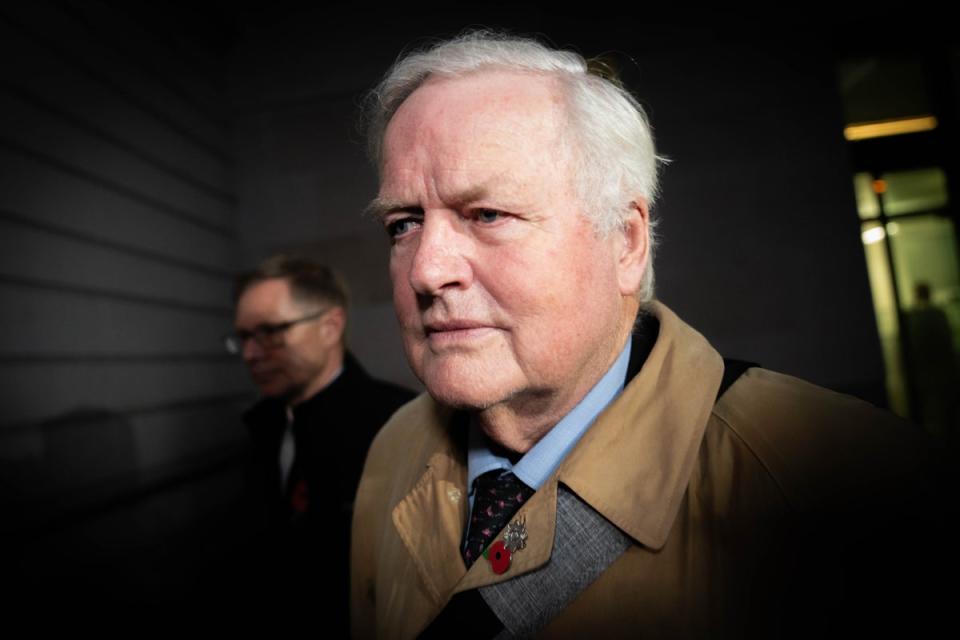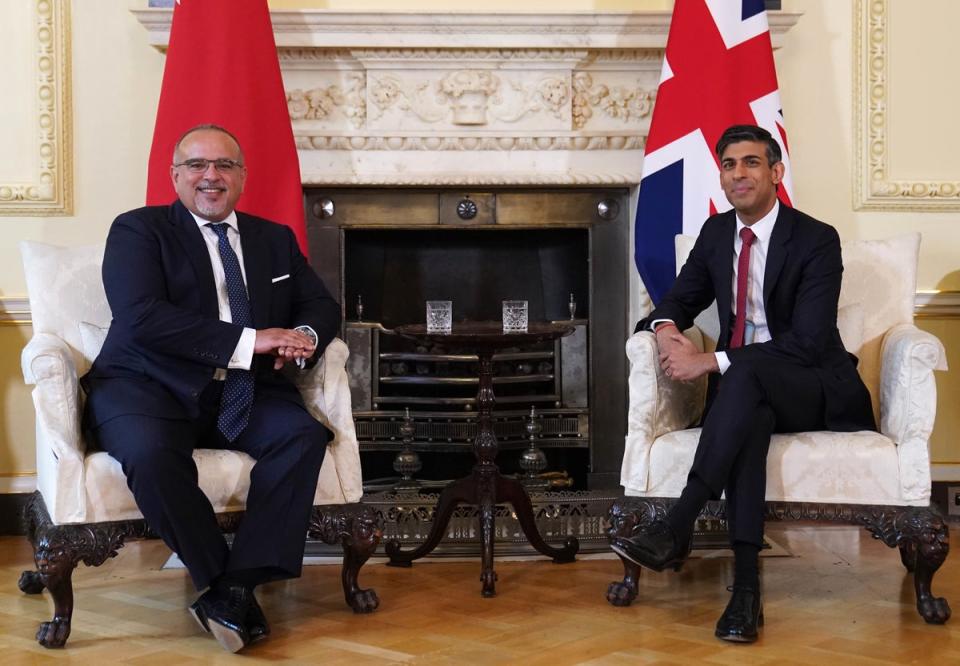Foreign Office accused of blocking British citizenship for prominent Bahrain human rights activist
The Foreign Office has been accused of blocking a prominent Bahraini human rights activist from being granted British citizenship – with the wait for a decision now stretching more than three years.
Sayed Ahmed Alwadaei, a director at the Bahrain Institute for Rights and Democracy, has indefinite leave to remain in the UK, having been granted political asylum here in 2012 after taking part in pro-democracy protests in the kingdom. However, Mr Alwadaei has been facing a long delay to his citizenship application, which should usually take six months to process.
Emails between the Foreign Office and the Home Office, which have been shared with The Independent, show that Home Office officials have been pushing to grant Mr Alwadaei citizenship – which he applied for in May 2021 – as “there are no grounds to refuse the application”. However officials at the Foreign Office have been dragging their feet after being consulted about whether granting Mr Alwadaei citizenship would affect bilateral relations with Bahrain.
Bahrain is a close UK ally. Prime minister Rishi Sunak signed a new agreement with the country last summer, which aims to enable £1bn more investment into the UK. Two weeks after that announcement, Bahrain was dropped from the Foreign Office list of “human rights priority countries” – nations where the UK is particularly concerned about human rights abuses and is working for change.

In 2022, Mr Alwadaei was involved in a confrontation with then-Conservative MP Bob Stewart who told him to “go back to Bahrain”. Mr Stewart surrendered the party whip after he was found guilty of a racially aggravated public order offence over the incident, but had that conviction overturned at Southwark Crown Court earlier this year. The judge in that appeal, Mr Justice Bennathan, said that while the words amounted to abuse, it was not believed that they caused Mr Alwadaei harassment, alarm or distress.
Mr Alwadaei faced criticism in 2023 for comments he made accusing Israel of committing a genocide in its war inside Gaza. In February this year, the then home secretary, James Cleverly, apologised and said he had arranged for compensation to be paid to Mr Alwadaei after officials unlawfully detained him for more than two hours at Gatwick airport on his return to the UK from a UN meeting in Switzerland in September 2023.
In an email to the Foreign Office dated 5 June 2023, Home Office officials explained that “because of the applicant’s high profile, Home Office contacted FCDO for a view on the potential bilateral implications should the applicant be granted British citizenship”. The email refers to notes from the Foreign Office in August 2022 and March 2023 on Mr Alwadaei and “the implications arising from granting him British citizenship”. These Foreign Office notes have not yet been disclosed, but could be publicised if the case goes to court.

The Home Office email reveals that the Foreign Office “relayed concerns” about Mr Alwadaei, but says that Home Office civil servants assessed these concerns were not serious enough to refuse his application. They then asked if the foreign secretary, then Mr Cleverly in a previous role, wanted to raise the matter with the home secretary, then Suella Braverman.
The Foreign Office had earlier asked whether their advice on Mr Alwadaei’s case would be made public in any potential court proceedings, with the Home Office confirming they would.
On 20 July 2023, FCDO officials confirmed that they would not be submitting any formal representations to the home secretary about the application. However nearly a year on no decision about Mr Alwadaei’s citizen has been made.
Mr Alwadaei told The Independent: “The UK is my home after fleeing torture and imprisonment in Bahrain but enduring over three years of scandalous delays to receive a decision on my citizenship application, despite meeting all legal requirements, has been a nightmare.
“To discover that these delayed have been mainly imposed by the UK foreign office, driven by fears of jeopardising relations with Bahrain, is shocking. The Foreign Office should seek to advance human rights when dealing with abusive states, not reward those states by making the lives of human rights defenders – they have forcibly exiled and rendered stateless – more difficult.”

Daniel Carey, partner at Deighton Pierce Glynn, who are representing Mr Alwadaei, said: “It should not require legal proceedings just to get a Home Office decision on a citizenship application, but the over three year delay in this case has made this necessary.
“My client will argue this delay is unlawful and it will require very good reasons to defend such a claim. ‘Bilateral’ concerns associated with the Bahrain government are not a good reason, indeed they raise troubling questions about the extent to which foreign persecution of human rights activists is permitted to interfere in the UK government’s own immigration decisions."
The Home Office declined to comment.


